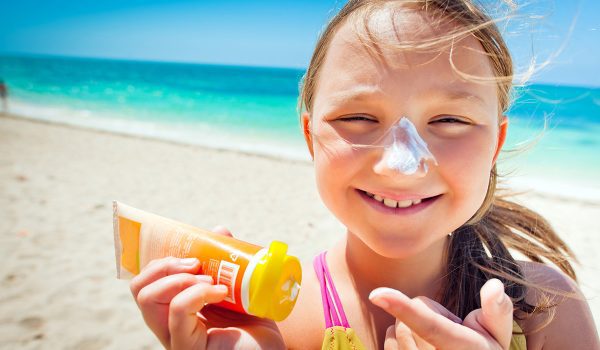
Best Sunscreen for Kids
As parents, nothing is more important than safeguarding our children’s health, especially when it comes to sun protection. With the sun’s harmful rays becoming increasingly intense, finding the perfect sunscreen for your little ones is essential. In this guide, we’ll explore everything about selecting the best sunscreen for kids and recommend some top picks to keep your children safe and happy under the sun.
Understanding the Importance of Sunscreen for Kids
Before diving into product recommendations, let’s understand why sunscreen is crucial for children. Young skin is more delicate and susceptible to sun damage than adults. Prolonged exposure to UV radiation increases the risk of sunburn, premature aging, and even skin cancer later in life. Therefore, applying sunscreen regularly is a non-negotiable part of any child’s skincare routine.
Key Features to Look for in Sunscreen for Kids
1. Broad-Spectrum Protection: Opt for sunscreens that offer broad-spectrum protection, shielding against both UVA and UVB rays.
2. High SPF: Choose a sunscreen with a Sun Protection Factor (SPF) of 30 or higher to ensure adequate protection against UVB rays.
3. Water-Resistant: Look for water-resistant formulas, especially if your child enjoys swimming or playing in water.
4. Hypoallergenic and Fragrance-Free: To minimize the risk of irritation, select sunscreens labeled as hypoallergenic and fragrance-free.
5. Gentle Formulation: Seek sunscreens specifically formulated for children’s sensitive skin, avoiding harsh chemicals and potential allergens.
Top Best for Sunscreen for Kids
1. Blue Lizard Australian Sunscreen – Baby SPF 30+: This pediatrician-recommended sunscreen offers broad-spectrum protection with a gentle, mineral-based formula. It’s water-resistant for up to 40 minutes, making it ideal for active kids.
2. Neutrogena Pure & Free Baby Sunscreen Lotion SPF 50: This hypoallergenic and fragrance-free sunscreen is formulated with zinc oxide for gentle yet effective protection. Its high SPF ensures superior defense against harmful UV rays.
3. Aveeno Baby Continuous Protection Sensitive Skin Zinc Oxide Sunscreen SPF 50: Designed for babies’ delicate skin, this sunscreen contains naturally sourced zinc oxide to provide broad-spectrum protection. Its gentle, tear-free formula is suitable for even the most sensitive skin types.
4. Thinkbaby Safe Sunscreen SPF 50+: This award-winning sunscreen boasts a non-toxic, mineral-based formula that’s free from harmful chemicals. It offers broad-spectrum protection and is water-resistant for up to 80 minutes, perfect for long days spent outdoors.
Frequently Asked Questions On Best Sunscreen for Kids
1. Why is sunscreen important for kids?
Sunscreen is essential for kids because their delicate skin is more susceptible to sun damage. Regular application of sunscreen helps protect against sunburn, premature aging, and skin cancer.
2. What should I look for when choosing sunscreen for my child?
When selecting sunscreen for kids, look for a broad-spectrum formula with an SPF of 30 or higher. Opt for water-resistant, hypoallergenic, and fragrance-free options specifically formulated for children’s sensitive skin.
3. Is there a difference between adult and kid’s sunscreen?
While both adult and kid’s sunscreen offer sun protection, kid’s sunscreen is often formulated with gentler ingredients suitable for sensitive skin. Additionally, kid’s sunscreens may be tear-free and designed to be less irritating if accidentally ingested.
4. How often should I apply sunscreen on my child?
Apply sunscreen on your child’s exposed skin at least 15 minutes before going outdoors. Reapply every two hours or immediately after swimming or sweating, even if the sunscreen is labeled as water-resistant.
5. Are mineral sunscreens better for kids?
Mineral sunscreens, containing zinc oxide or titanium dioxide, are often gentler on children’s skin and less likely to cause irritation or allergic reactions. They provide effective broad-spectrum protection without the use of chemical filters.
6. Can babies use sunscreen?
It’s generally recommended to avoid using sunscreen on babies under six months old. Instead, keep them shaded and dressed in lightweight clothing, hats, and sunglasses. Consult with a pediatrician before applying sunscreen to infants.
7. Are spray sunscreens safe for kids?
While convenient, spray sunscreens can be inhaled, posing a risk to children’s respiratory health. If using spray sunscreen, apply it to your hands first and then gently rub it onto your child’s skin to minimize inhalation.
8. How can I encourage my child to wear sunscreen?
Make applying sunscreen a fun and positive experience for your child by involving them in the process. Let them choose their sunscreen or apply sunscreen together as part of a daily routine. Additionally, lead by example and prioritize sun protection for yourself too.
9. Can kids with sensitive skin use sunscreen?
Yes, kids with sensitive skin can use sunscreen formulated specifically for their needs. Look for hypoallergenic and fragrance-free options, and consider doing a patch test on a small area of skin before full application to ensure compatibility.
10. What’s the best way to remove sunscreen from my child’s skin?
Use a gentle, hypoallergenic cleanser or baby wash to remove sunscreen from your child’s skin after outdoor activities. Be sure to rinse thoroughly with lukewarm water and pat the skin dry with a soft towel.
Remember, consistent sun protection practices, including wearing sunscreen, seeking shade, and wearing protective clothing, are essential for keeping your child safe from the sun’s harmful rays. If you have specific concerns or questions about sunscreen for your child, consult with a pediatrician or dermatologist for personalized advice.
Conclusion
Protecting your child from the sun’s harmful rays is essential for their overall health and well-being. By choosing the right sunscreen with adequate sun protection and gentle formulation, you can ensure your little ones stay safe while enjoying outdoor activities. Remember to apply sunscreen generously and reapply every two hours or after swimming or sweating. With the best sunscreen for kids in hand, you can confidently embrace sunny days while keeping your children’s skin happy and healthy.

Leave a Reply